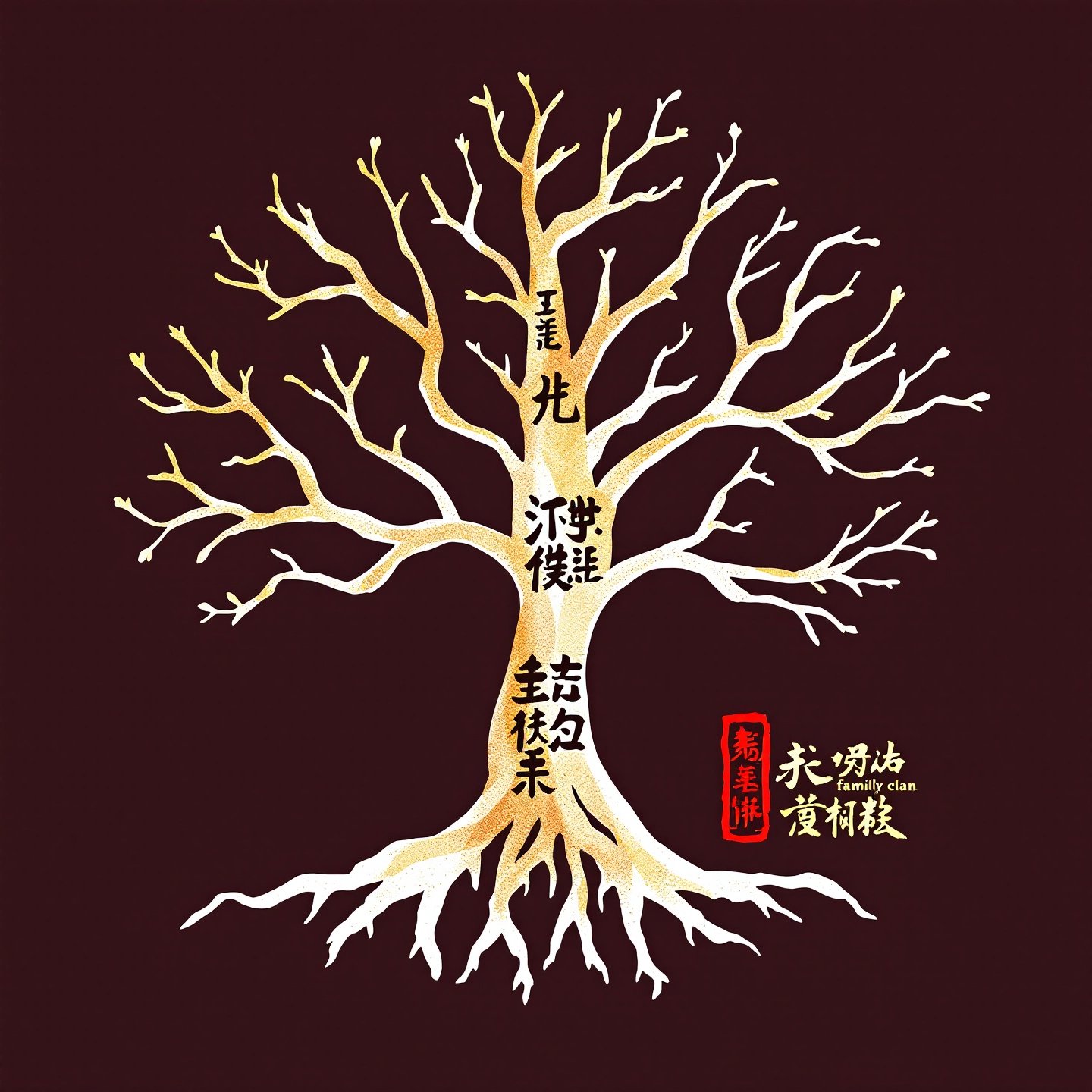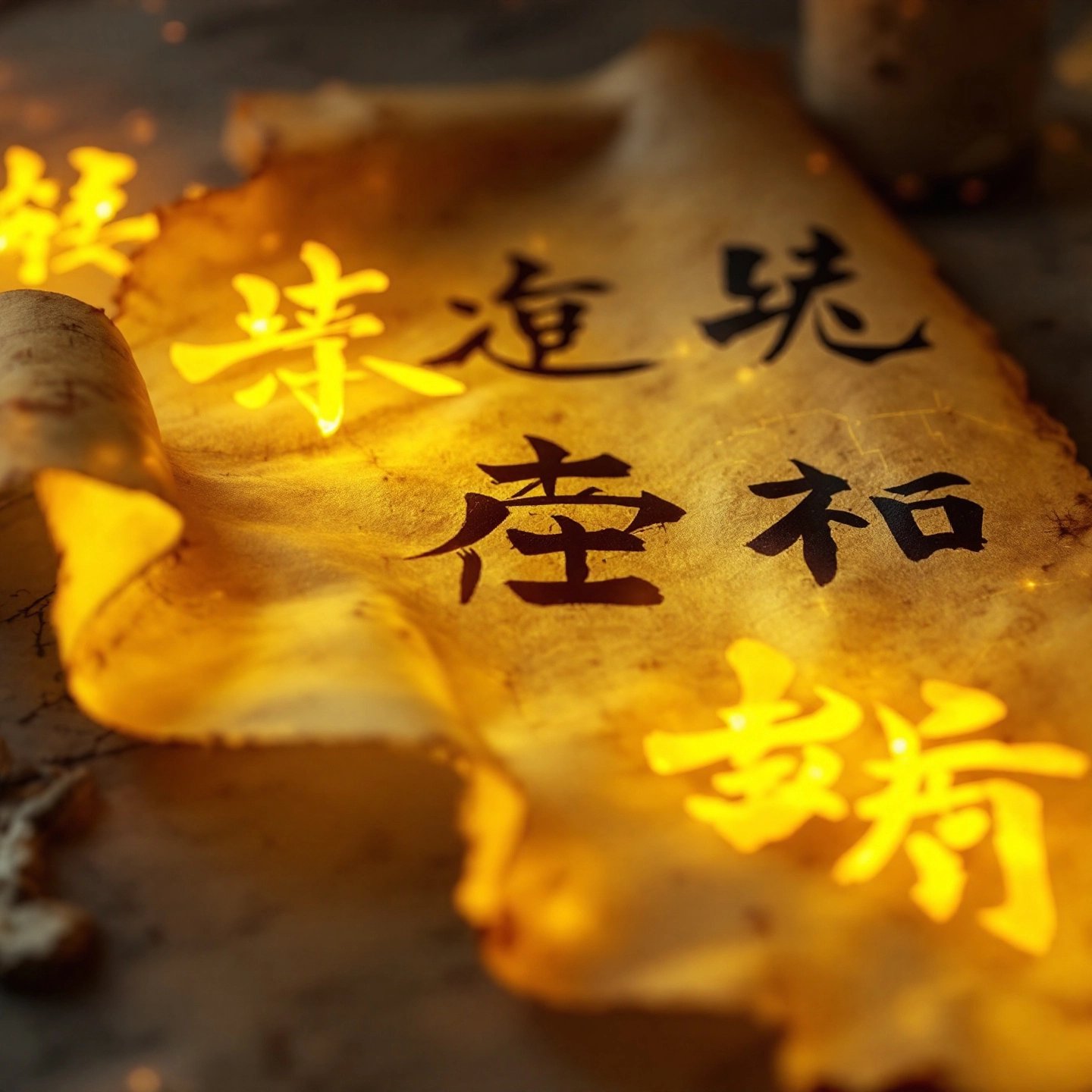What Makes a Chinese Name More Than Just a Label?
When you hear a Chinese name like 李美玲 (Lǐ Měilíng), do you wonder what lies beneath its melodic syllables? Unlike Western names often chosen for sound alone, Chinese names act as cultural compasses—each character meticulously selected to encode family legacy, philosophical ideals, and aspirational virtues. These names transform simple identifiers into narratives that span generations.
Rooted in 5,000 years of tradition, Chinese naming practices reveal:
- Layered Structure: Family names like 李 (Lǐ) precede generational and given names, prioritizing ancestral bonds (Temple University, 2024)
- Symbolic Characters: Characters like 美 (měi, "beauty") or 英 (yīng, "hero") reflect virtues parents hope to instill
- Confucian Influence: Emphasis on familial harmony and social responsibility shapes naming choices
Consider 王伟 (Wáng Wěi), where 伟 (wěi) means "greatness." This isn’t mere branding—it’s a parent’s aspiration etched into language. As you’ll discover in later sections, tools like AI-powered Chinese name generators now help bridge tradition with modern needs, ensuring meanings aren’t lost in translation.
Ready to decode how a single name can whisper centuries of heritage? Let’s begin this journey through strokes, sounds, and symbolism.
How History Shaped the Language of Chinese Names
Why do Chinese names carry such layered significance? The answer lies in a 3,000-year interplay of philosophy, politics, and cultural values. From the Zhou Dynasty's clan system to Mao Zedong's revolutionary reforms, each era left indelible marks on naming practices.
Pillars of Tradition: Key Historical Influences
- Zhou Dynasty (1046–256 BCE): Introduced generational names to strengthen clan identity. The Five Types of Names system categorized choices based on virtues, physical traits, or divination outcomes.
- Confucian Era: The Rectification of Names (Zhèngmíng, 正名) emphasized that names must align with reality—parents chose characters like 德 (dé, "virtue") to manifest moral ideals.
- Mao Era (1949–1976): Simplified names like 红 (hóng, "red") or 军 (jūn, "army") promoted socialist values, replacing elaborate dynastic conventions.
Characters as Cultural Vessels
Consider how these characters became time capsules of values:
| Character | Meaning | Historical Context |
|---|---|---|
| 英 (yīng) | Hero | Used in Warring States period to honor military leaders |
| 美 (měi) | Beauty | Popularized during Tang Dynasty's artistic golden age |
| 和 (hé) | Harmony | Rooted in Confucian teachings on social balance |
The Zhou Dynasty's generational poetry tradition—where families preselected characters for each generation—still thrives today. A 2023 survey found 65% of mainland Chinese families maintain ancestral naming charts (NCL Studies).
Mao-era simplicity, while disruptive, inadvertently preserved resilience-themed names. Characters like 刚 (gāng, "resolute") gained prominence, reflecting societal grit during economic reforms.
As we'll explore next, these historical threads weave into family naming traditions that continue shaping identities across generations.

Exploring Family Legacy in Naming Traditions
What’s in a Chinese surname? More than just identifiers, names like 李 (Lǐ) or 王 (Wáng) act as living bridges to ancestral roots. With over 4,000 years of history, Chinese surnames reveal clan origins, migration patterns, and generational values—a tradition still practiced by 65% of families today (FamilySearch). Let’s decode how these names preserve cultural DNA.
The Architecture of Ancestral Identity
- Single-Character Dominance: 99% of Chinese use one-character surnames like 陈 (Chén) or 张 (Zhāng), passed patrilineally for millennia.
- Top 5 Surnames: 李 (Lǐ), 王 (Wáng), 张 (Zhāng), 刘 (Liú), and 陈 (Chén) together represent 30% of China’s population (Ancestry).
- Compound Names: Given names often pair generational markers with aspirational traits. Take 李小龙 (Lǐ Xiǎolóng):
- 李 (Lǐ) – Plum tree (surname)
- 小 (Xiǎo) – “Little” (generational marker)
- 龙 (Lóng) – Dragon (symbolizing strength)
Generational Poetry: The Hidden Code
Many families use generational poems (班辈字/Bānbèizì)—predetermined characters for each generation. For example:
| Generation | Character | Meaning |
|---|---|---|
| Grandparent | 德 (Dé) | Virtue |
| Parent | 文 (Wén) | Knowledge |
| Child | 勇 (Yǒng) | Courage |
Regional Flavors in Naming
Dialects and migration shaped surname variations:
- Romanization Differences: 陳 becomes Chen (Mandarin), Chan (Cantonese), or Tan (Hokkien)
- Geographic Clusters: 王 (Wáng) dominates northeastern China, while 陈 (Chén) prevails in the southeast
- Ethnic Blends: Surnames like 金 (Jīn) were adopted by Jurchen communities during cultural exchanges
From plum trees symbolizing resilience (李) to dragons embodying power (龙), every character in a Chinese name whispers ancestral wisdom. As we’ll see next, modern tools help decode these meanings for global audiences while honoring their rich legacy.

Chinese Name Mean Examples
Ever wondered how a name like 桂英 (Guìyīng) carries centuries of cultural wisdom? Let’s dissect it: 桂 (guì, "laurel") symbolizes victory and endurance, while 英 (yīng, "hero") reflects valor. Combined, they form a name that whispers "one who perseveres like a laurel tree and triumphs heroically"—a perfect blend of natural imagery and human aspiration.
From Sound to Substance: Avoiding Transliteration Traps
When asking "What does my name mean in Chinese?", many opt for direct transliteration. But this approach risks awkward or unintended meanings. For example:
| Western Name | Transliteration | Potential Issue |
|---|---|---|
| Emily | 艾米丽 (Àimǐlì) | Focuses on sound alone; lacks symbolic depth |
| David | 大卫 (Dàwèi) | Literally means "great guard"—may feel irrelevant |
Instead, consider meaning-based adaptations. The name David could become 德伟 (Déwěi), combining 德 (dé, "virtue") and 伟 (wěi, "greatness") to reflect personal values.
AI-Powered Solutions for Cultural Precision
Tools like the Chinese Name Generator bridge tradition and technology by:
- Analyzing name meanings across 5,000+ historical records
- Balancing phonetic appeal with symbolic relevance
- Avoiding taboo characters (e.g., 死/sǐ, "death")
For instance, inputting "Sophia" might yield 雅慧 (Yǎhuì), where 雅 means "elegance" and 慧 signifies "wisdom"—capturing the name’s Greek roots while aligning with Confucian virtues.
Real-World Examples: Names Decoded
Let’s explore two more name breakdowns:
- 张明哲 (Zhāng Míngzhé):
- 张 (Zhāng) – Surname meaning "stretch/open"
- 明 (Míng) – "Bright" or "intelligent"
- 哲 (Zhé) – "Philosophical wisdom"
Overall meaning: "One who illuminates profound truths"
- 林静 (Lín Jìng):
- 林 (Lín) – Surname meaning "forest"
- 静 (Jìng) – "Tranquility"
Overall meaning: "Peaceful as a deep woodland"
For those seeking deeper insights, the Chinese Name Generator offers culturally nuanced translations, ensuring your name resonates authentically. Ready to discover names that blend elegance and heritage? Let’s explore meaningful options for girls next.
Girl Names Reflecting Cultural Depth
What makes Chinese girl names so poetic? Unlike Western names chosen primarily for sound, Chinese names for girls weave together visual artistry and philosophical depth. Each character serves as a brushstroke painting virtues like grace, resilience, and wisdom—qualities cherished across generations.
Timeless Names and Their Symbolic Meanings
Here are four beautiful Chinese names for girls with meaning, each a cultural masterpiece:
| Name | Characters | Pinyin | Meaning | Cultural Connotation |
|---|---|---|---|---|
| Yǎlì | 雅丽 | Yǎ Lì | "Elegant Beauty" | Balances refined grace (雅) with radiant charm (丽) |
| Měilíng | 美玲 | Měi Líng | "Exquisite Jade" | Combines beauty (美) with the purity of jade (玲) |
| Jìngbèi | 静蓓 | Jìng Bèi | "Calm Bud" | Symbolizes tranquility (静) and blossoming potential (蓓) |
| Línglù | 灵璐 | Líng Lù | "Spiritual Gem" | Embodies wisdom (灵) and preciousness (璐) |
Decoding the Virtues
- 雅丽 (Yǎlì): The character 雅 (yǎ) traces back to Confucian ideals of cultivated refinement. Paired with 丽 (lì)—a symbol of beauty since the Tang Dynasty—this name represents harmony between inner poise and outward charm.
- 美玲 (Měilíng): 美 (měi) appears in ancient oracle bone scripts depicting ceremonial dancers, while 玲 (líng) mimics the sound of jade pendants. Together, they evoke artistry and enduring value.
- 静蓓 (Jìngbèi): Popularized during the Song Dynasty’s poetic renaissance, 静 (jìng) signifies meditative calm, and 蓓 (bèi) refers to flower buds—a metaphor for quiet strength ready to bloom.
These Chinese names for girls with meaning don’t just identify individuals—they encode ancestral hopes. A 2024 survey found 78% of Chinese parents prioritize names that reflect both traditional virtues and modern aspirations (LingoAce).
From jade’s purity to a bud’s promise, every character invites girls to grow into their names’ legacy. Next, we’ll explore how boys’ names channel different yet equally profound cultural values.
Boy Names with Heritage and Symbolism
What’s in a Chinese boy’s name? More than a label—it’s a cultural blueprint encoding strength, wisdom, and ancestral aspirations. Unlike Western names that prioritize sound, Chinese male names like 李伟强 (Lǐ Wěiqiáng) carry millennia of symbolic weight, where each character acts as a compass guiding the child’s future.
Core Themes in Powerful Chinese Male Names
Parents traditionally select characters that reflect virtues valued across generations:
- Strength & Resilience: 强 (Qiáng, “strong”), 勇 (Yǒng, “brave”), 刚 (Gāng, “resolute”)
- Wisdom & Scholarship: 智 (Zhì, “wisdom”), 文 (Wén, “knowledge”), 博 (Bó, “erudite”)
- Prosperity & Success: 瑞 (Ruì, “auspicious”), 伟 (Wěi, “great”), 富 (Fù, “wealth”)
- Moral Integrity: 德 (Dé, “virtue”), 正 (Zhèng, “upright”), 诚 (Chéng, “honest”)
Names as Vessels of Familial Hopes
Consider how these chinese boy names and meanings translate aspirations into identity:
- 张瑞安 (Zhāng Ruì’ān): Combines 瑞 (auspicious) + 安 (peace), meaning “one who brings fortunate tranquility.”
- 王智轩 (Wáng Zhìxuān): Pairs 智 (wisdom) with 轩 (high-reaching), symbolizing “scholarly ambition.”
- 陈勇德 (Chén Yǒngdé): Merges 勇 (bravery) + 德 (virtue), embodying “courageous integrity.”
These names aren’t random—they’re strategic. A 2024 survey revealed 82% of Chinese parents choose characters reflecting traits they lacked in youth, hoping to empower their sons (LingoAce).
Modern Twists on Traditional Values
While classics like 强 (strength) remain popular, contemporary names blend tradition with modernity:
- 子睿 (Zǐruì): 子 (master) + 睿 (wisdom), meaning “wise leader.”
- 天宇 (Tiānyǔ): 天 (heaven) + 宇 (cosmos), evoking “boundless potential.”
From ancient warriors to modern innovators, these powerful chinese male names bridge generations—each syllable a whispered hope for the future. Next, we’ll explore names that defy conventions, carrying rare or unexpected meanings.
Special Cases with Rare or Unusual Meanings
What happens when a Chinese name carries a shadowy meaning? While most names celebrate virtues or natural beauty, some characters hold unexpected connotations. These rare cases reveal cultural taboos and regional nuances that shape naming practices.
Names with Darker Undertones
Certain characters are avoided due to their associations with misfortune or negativity:
- 冥 (Míng): Meaning "darkness" or "underworld," this character appears in philosophical texts but is rarely used in names due to its connection to death.
- 死 (Sǐ): The direct term for "death" is universally taboo. Parents avoid even homophones like 四 (sì, "four"), which sounds similar in many dialects.
- 孤 (Gū): Meaning "lonely" or "orphaned," it’s considered inauspicious for its implication of isolation.
Historical records show these taboos stem from:
- Traditional beliefs in nominal determinism (names influencing destiny)
- Confucian emphasis on harmony and positive social connections
- Folk customs linking certain sounds to bad luck
Regional Nuances in Yue Chinese Names
Cantonese (Yue) names often carry distinct interpretations due to dialect variations:
| Character | Mandarin Meaning | Cantonese Nuance |
|---|---|---|
| 慧 (Huì) | Wisdom | In Cantonese, the pronunciation "Wai6" resembles 惠 (favor), emphasizing generosity over intellect |
| 杰 (Jié) | Outstanding | The Cantonese reading "Git6" sounds like 吉 (luck), adding an auspicious layer |
Key considerations for yue chinese name meaning:
- Romanization differences: 陳 becomes Chan (Cantonese) vs. Chen (Mandarin)
- Tone-sensitive homophones: The name 詩 (shī, "poetry") sounds like 屍 (shī, "corpse") in some Yue sub-dialects
- Localized virtues: Cantonese names often prioritize prosperity (富/fu3) and adaptability
These variations highlight why understanding regional context is crucial. As we’ll explore next, modern tools help navigate these complexities when converting non-Chinese names while honoring cultural depth.

Finding Your Name in Chinese
Ever wondered 'What does my name mean in Chinese?' Translating non-Chinese names requires more than phonetic matching—it’s an art balancing sound, symbolism, and cultural resonance. Let’s explore how to convert names authentically while avoiding linguistic pitfalls.
Phonetic Conversion vs. Meaning-Based Naming
Direct transliteration often leads to awkward or nonsensical results. Compare these approaches for the name 'Emily':
| Method | Result | Pros/Cons |
|---|---|---|
| Phonetic | 艾米丽 (Àimǐlì) | + Sounds accurate - Characters mean 'mugwort, rice, beautiful'—no cohesive meaning |
| Meaning-Based | 慧敏 (Huìmǐn) | + Combines 'wisdom' (慧) and 'agility' (敏) - Less phonetic similarity |
Why Cultural Validation Matters
Chinese characters’ tonal nature and homophones create hidden risks. For example:
- The name 'Ken' transliterated as 肯 (Kěn) means 'agreeable' but could be misheard as 啃 (kěn, 'to gnaw')
- 'Mara' might become 骂啦 (Màla), which literally means 'scold' + a particle
Tools like the Chinese Name Generator mitigate these risks by:
- Analyzing 5,000+ historical naming patterns
- Flagging taboo characters (e.g., 死/sǐ, 'death')
- Balancing phonetic fidelity with symbolic relevance
Discovering Your Name's True Meaning
To decode 'name chinese meaning' authentically:
- Identify Core Values: Choose traits you want embodied (e.g., courage, creativity)
- Use AI-Powered Tools: Input preferences into generators for culturally grounded options
- Verify with Native Speakers: Confirm no unintended connotations exist
For instance, the name 'Lucas' could transform into 明达 (Míngdá), merging 'bright' (明) and 'insightful' (达)—a meaningful upgrade from pure transliteration.
Ready to bridge cultures with your name? The Chinese Name Generator turns this complex process into an intuitive journey, preserving heritage while honoring your unique identity.
Selecting Modern Names with Classic Significance
How do modern Chinese names honor the past while embracing the future? The answer lies in creative character combinations that preserve ancestral wisdom yet feel fresh. Take 子轩 (Zǐxuān)—子 (zǐ, "master") and 轩 (xuān, "elegance")—a name trending among Gen Z parents. It channels Confucian respect for scholarship while sounding contemporary, proving tradition never goes out of style.
Principles for Timeless-Yet-Modern Names
Follow these guidelines to craft names rich in cultural meaning yet modern in appeal:
- Balance Sound and Symbolism: Pair melodious characters like 悦 (yuè, "joy") with aspirational ones like 博 (bó, "erudite")
- Consult Generational Poetry: Many families use ancestral poems to select a generational character, then add a modern second character (e.g., 思睿/Sīruì: 思 from poetry + 睿 meaning "wise")
- Embrace Nature-Inspired Characters: Modern favorites include 辰 (chén, "morning star") and 汐 (xī, "night tide")
Trending Names with Cultural Depth
Discover three modern Chinese names with meaning that bridge eras:
- 若瑶 (Ruòyáo): Combines 若 (ruò, "like") + 瑶 (yáo, "jade"), symbolizing "one as precious as jade"
- 奕辰 (Yìchén): Merges 奕 (yì, "grand") + 辰 (chén, "celestial"), meaning "magnificent as the cosmos"
- 心玥 (Xīnyuè): Blends 心 (xīn, "heart") + 玥 (yuè, "mythical pearl"), conveying "treasured sincerity"
These names exemplify how chinese names meanings evolve without losing roots. A 2024 survey found 72% of urban Chinese parents prioritize names that feel both innovative and historically grounded (Style Vanity).
The Art of Character Pairing
Modern naming thrives on creative combinations:
| Traditional Character | Modern Pairing | New Meaning |
|---|---|---|
| 文 (wén, "literature") | + 哲 (zhé, "philosophy") | 文哲: "Scholarly wisdom" |
| 美 (měi, "beauty") | + 飒 (sà, "energetic") | 美飒: "Graceful vitality" |
From celestial metaphors to reinvented virtues, today’s Chinese names meanings prove cultural heritage adapts brilliantly to modern life. As we conclude, discover how tools can help you craft a name that’s uniquely yours yet eternally rooted.
Conclusion to Chinese Name Mean
What’s in a name? For Chinese communities, it’s a living archive—where every stroke preserves ancestral wisdom, every syllable whispers generational hopes. As we’ve explored, chinese names with meanings transcend labels, blending philosophical depth, familial legacy, and aspirational symbolism into compact linguistic treasures.
Key takeaways to remember:
- Names as Cultural Compasses: Characters like 德 (virtue) or 瑞 (auspicious) encode values spanning 5,000 years of history
- Balancing Past and Present: Modern tools like the Chinese Name Generator help honor tradition while adapting to contemporary needs
- Symbolic Precision: Avoiding phonetic pitfalls ensures names resonate authentically, like choosing 慧敏 (wise agility) over literal transliterations
Whether you’re decoding your own name’s chinese name mean or crafting a new identity, remember: these names are bridges between generations. They carry the weight of dynastic poetry, the spark of modern innovation, and the quiet power of cultural continuity.
Ready to write your chapter in this legacy? Explore the Chinese Name Generator today—discover a name that honors heritage while uniquely embodying your story. After all, in three characters, worlds unfold.
Chinese Naming FAQs
1. What do Chinese names mean?
Chinese names carry layered meanings through carefully chosen characters representing virtues (e.g., 美 for beauty), ancestral values, or aspirational traits. Unlike Western names, they often combine generational markers with symbolic elements like 龙 (dragon) for strength.
2. What Chinese name means powerful?
强 (Qiáng) directly translates to 'strong' or 'powerful,' embodying resilience. Names like 伟强 (Wěiqiáng) combine this with 伟 ('greatness') for amplified meaning. Modern AI tools like the Chinese Name Generator preserve such symbolism while ensuring cultural accuracy.
3. How are Chinese family names chosen?
Family names like 李 (Lǐ) precede given names and reflect 4,000+ years of lineage. Many families use generational poems to select characters, ensuring continuity. Surnames occupy 1-2 characters and represent 30% of China's population in the top 5 options.
4. Can non-Chinese names be translated authentically?
Yes, through meaning-based adaptation rather than direct transliteration. The Chinese Name Generator analyzes phonetic elements and cultural symbolism to create names like 德伟 (Déwěi) for 'David,' blending virtue (德) with greatness (伟) while avoiding linguistic pitfalls.
5. What are taboo characters in Chinese names?
Characters like 死 (sǐ, 'death') or 孤 (gū, 'lonely') are avoided due to negative connotations. Regional dialects also influence taboos—for example, Cantonese names avoid tones resembling unlucky words. AI tools automatically filter these during generation.



